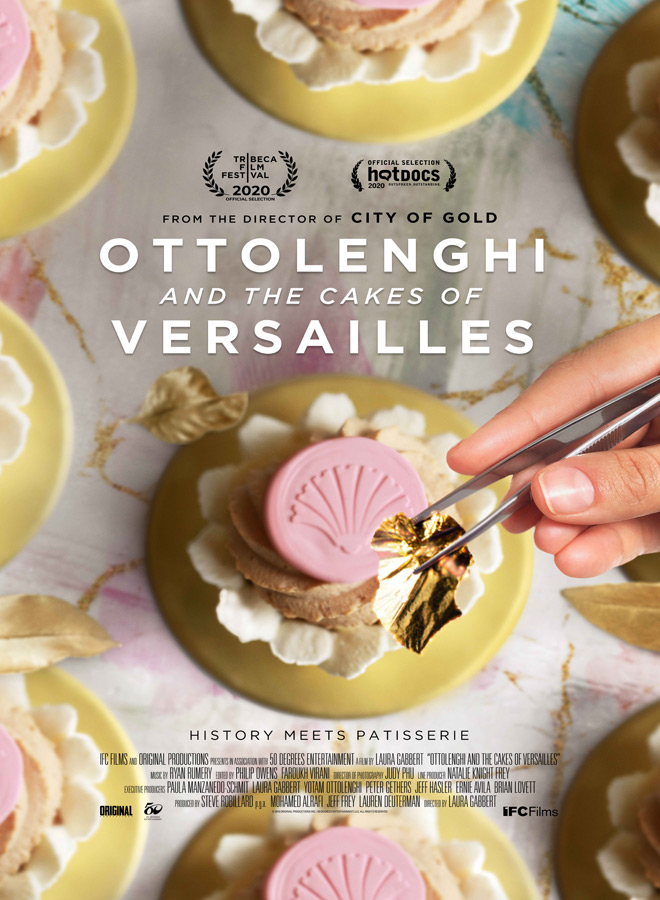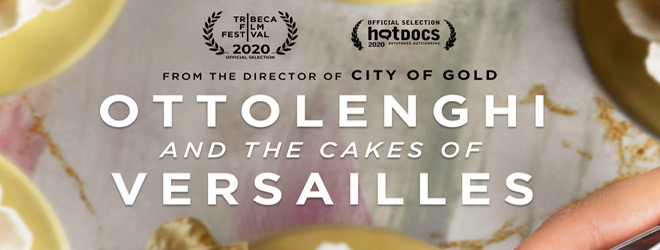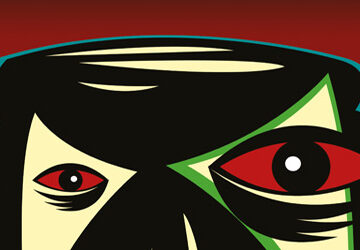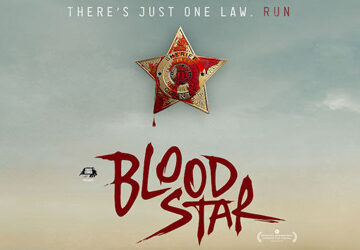If anyone is looking for a new name for their band, Ottolenghi and the Cakes of Versailles could work. But they may want to stick around for the film of the same name too.
Ottolenghi and the Cakes of Versailles follows the famous chef Yotam Ottolenghi (Anthony Bourdain: Parts Unknown series, 50 Years Legal 2017) as he aims to combine food, art, and history. Alongside Dominique Ansel (Eat Me! The World’s Most Beautiful Cakes, Good Morning America series), Dinara Kasko and others, he will bring the court of the former French royal family to life in the form of architectural mousse cakes, swan pastries, and an edible garden. Ottolenghi also goes into the history of the ingredients used, the court of Versailles, its connection to modern times, and the frailty of decadence. After all, the French royals did not last forever, and neither can sweet treats.
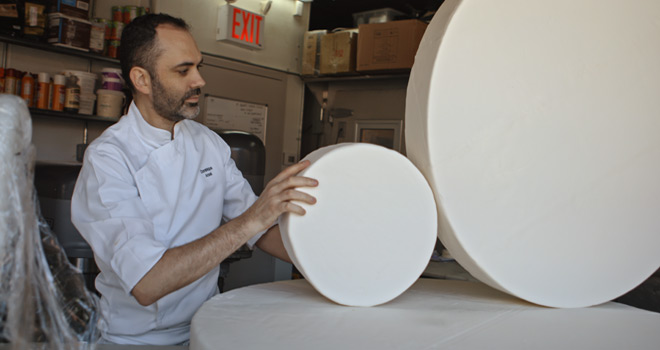
Directed by Laura Gabbert (City of Gold 2015, Ugly Delicious series), the film is due out on digital platforms via IFC Films beginning on September 25, 2020. So is it as sweet as a fine pastry or did it go stale before release?
First off, this is more like an art documentary than a Great British Bake-Off deal. Sure, it is about chefs and the food they make – like how Ansel invented the ‘Cronut’ – but it is more about how they can make dishes that express ideas or showcase new ways of doing things. Like when Ottolenghi describes how Kasko – a former 3D designer- brings that experience into her baking. Or how Singaporean pastry chef Janice Wong (Confucius Was A Foodie series) describes her working methods and how she fits them into what Ottolenghi and the Metropolitan Museum of Art want. It comes off less like making an order for someone at a restaurant and more as an artist making a commission for a client, such as what kind of cake or pastry could she make that would represent Versailles while retaining her own style. It is all about being a feast for the eyes and mind first, and then a treat for the tongue.
That is not to mention the contrasting comparisons drawn between the court of Versailles and modern day. How, on the one hand, it was about showing off fancy new food dishes, rather like people today Instagramming their meals, while on the other, Versailles was open to the public – common people could go and check out the splendor of the palace, its gardens, and see the royal family eat their meringues and brioches. A rather more open experience than Buckingham Palace or Tokyo’s Imperial Palace today.
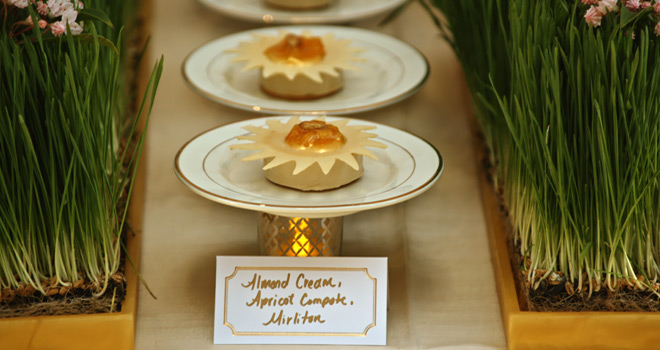
It all sounds high-minded, but there are a few segments that bring it back down to Earth. Ottolenghi comes off quite amiable as he relates his own personal journey into cookery between segments. He has a more easy-going touch with his team and coordinators than, say, a Gordon Ramsay type, and he even explains why he goes for this approach over the Hell’s Kitchen attitude most assume of restaurant kitchens. Even when the film focuses on the preparations for the events where it does resemble a reality TV show with its handheld camera, cuts, etc., he comes off as more understanding than demanding.
The kitchen scenes also feel a lot more mundane and quiet than the Ramsay shows: no shouting or screaming, just resignation to try things again or other approaches to get it right. This can be refreshing, though it also comes off fairly dry, presentation-wise. However, the final exhibits and the sights of Versailles are dazzling. There is just not much pizazz in the discussions and interviews beyond the personalities of Ottolenghi and his team.
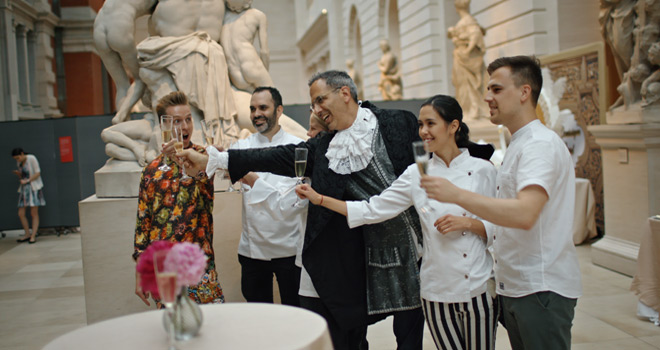
Still, that is not a knock again Ottolenghi and the Cakes of Versailles. It is quite a good documentary; in fact, making for a relaxing and interesting viewing experience from start to finish. However, the film is best suited for people into art and cooking versus those just interested in cooking alone; it is about culinary art rather than just culinary. So those more into the function of food preparation, like The Great British Bake-Off or the like, might not get much out of it. While they will not learn how to make their own edible gardens at home, it might inspire people to look at other cultural sights or historical events and get creative in their own kitchens. Thus, for these reasons, Cryptic Rock gives this film 4 out of 5 stars.
